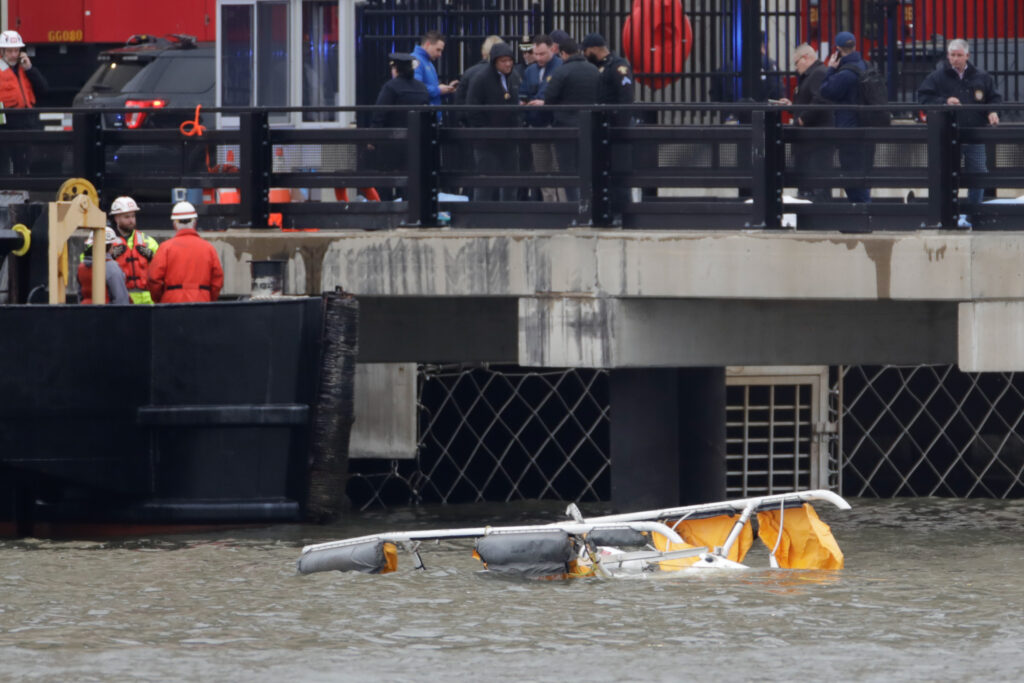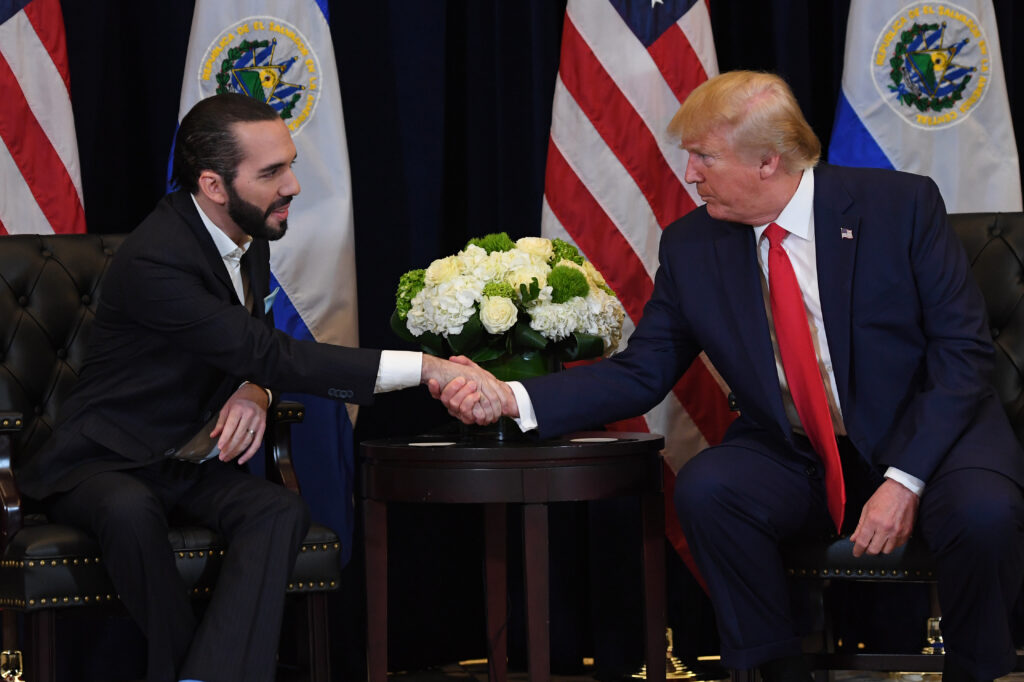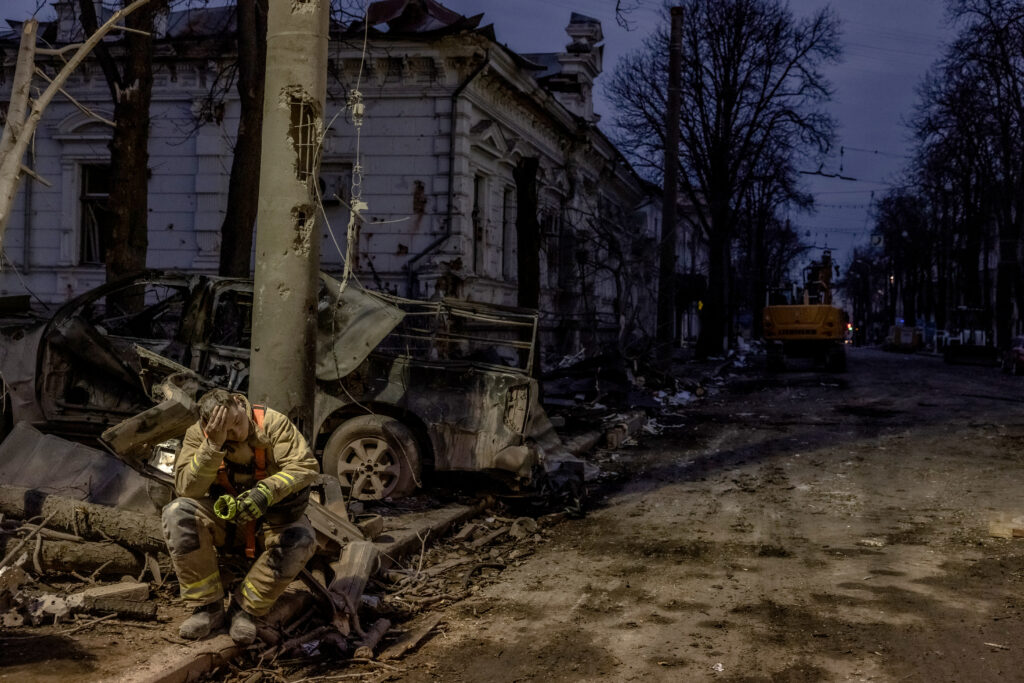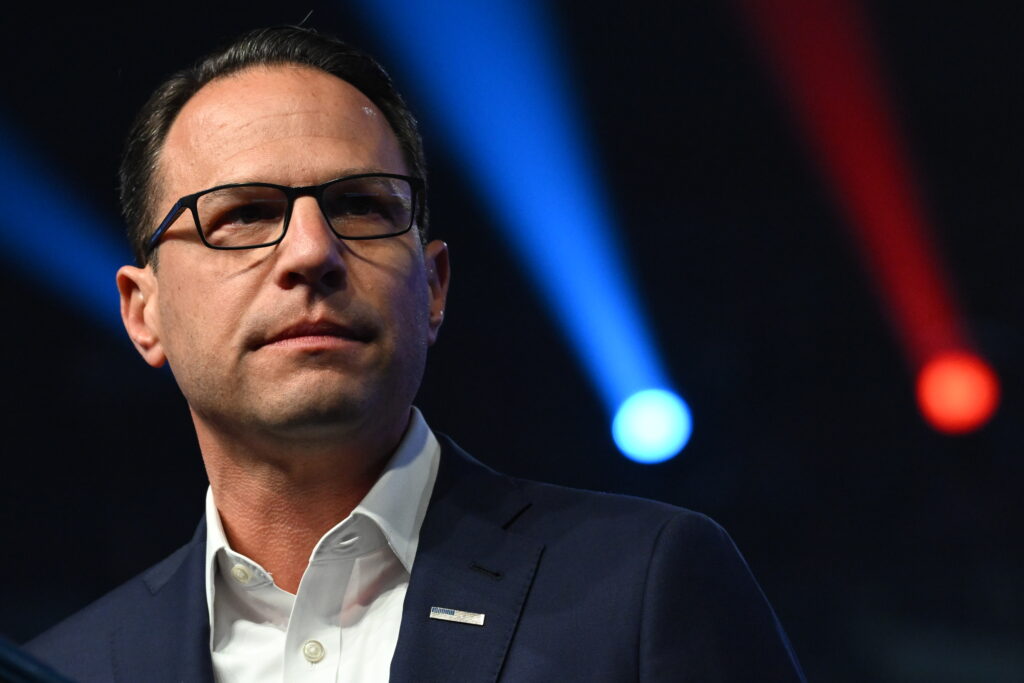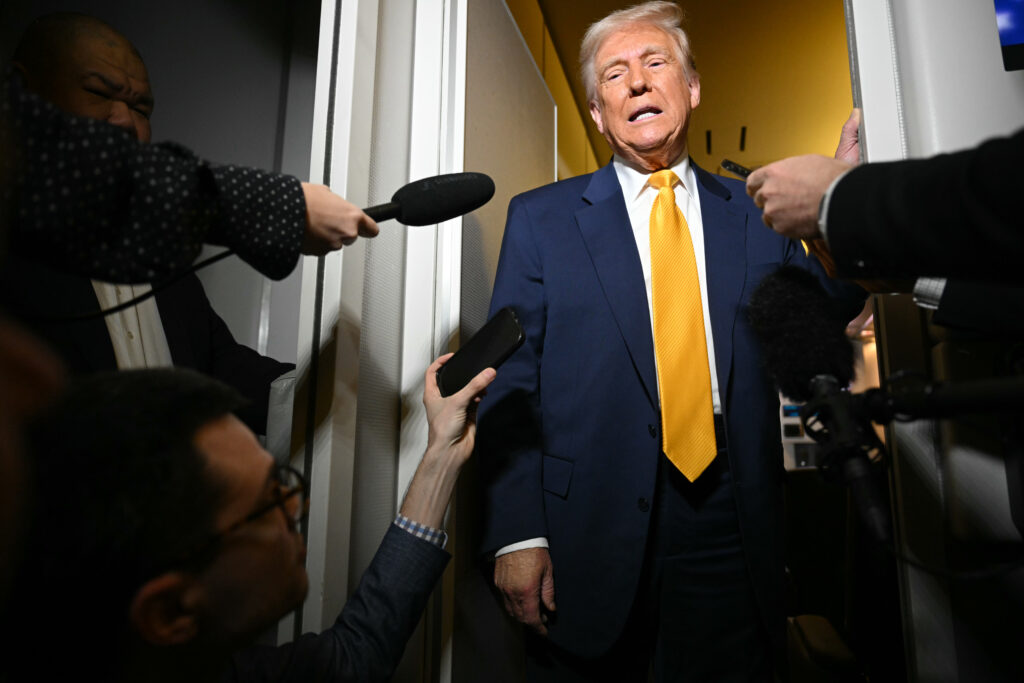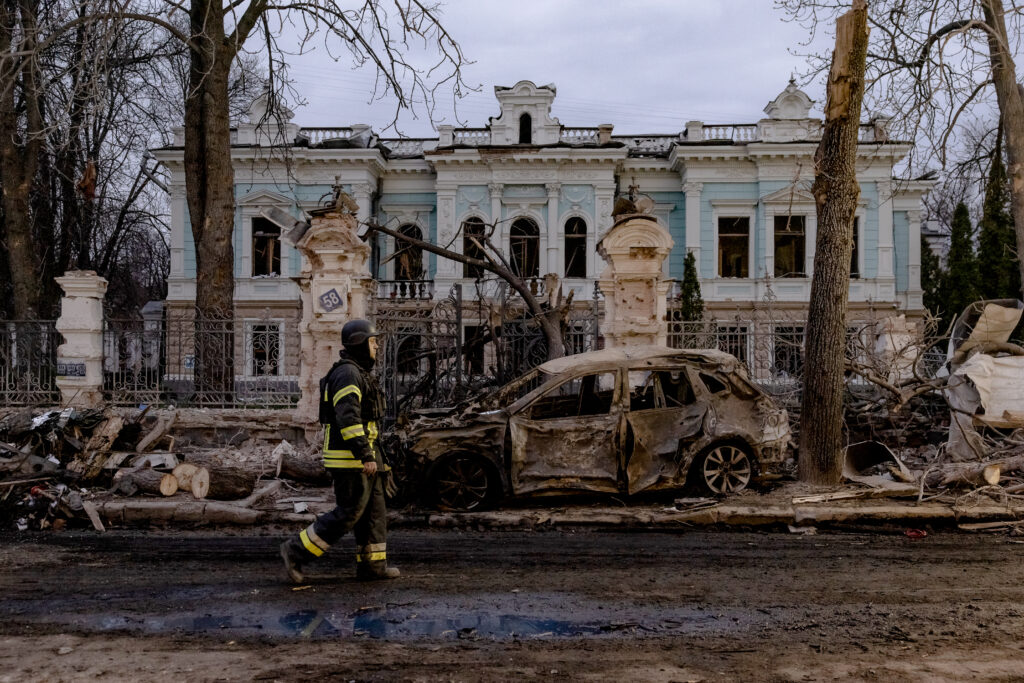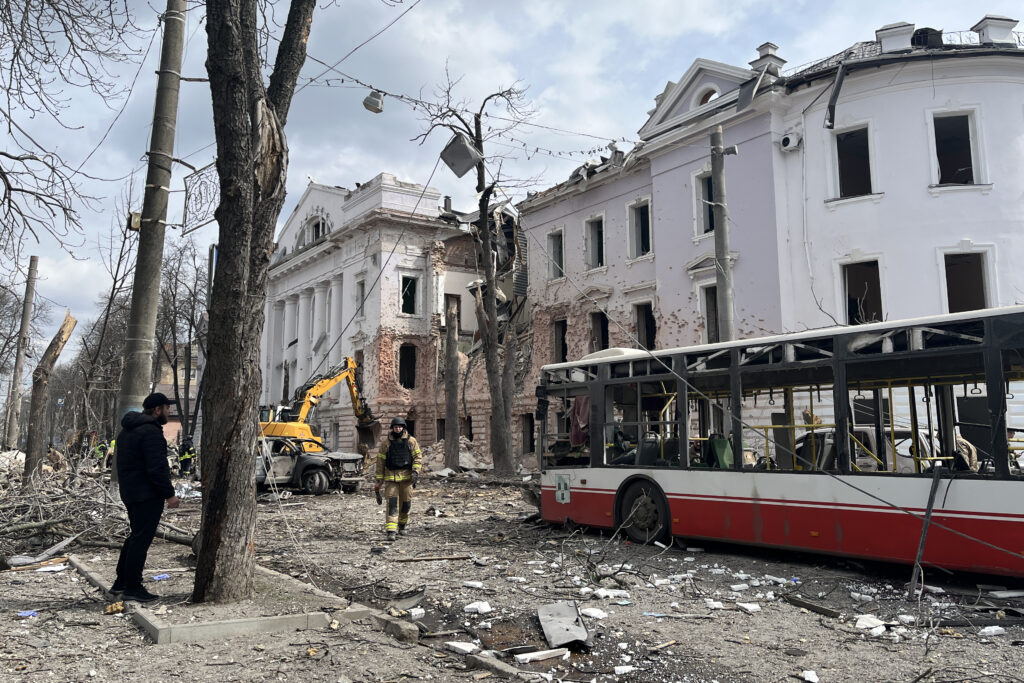A Russian missile strike on Sunday on the Ukrainian city of Sumy killed at least 34 people, authorities said as European and US leaders condemned one of the deadliest attacks in months. Two ballistic missiles hit the centre of the northeastern city, close to the Russian border, on Sunday morning, Ukrainian authorities said. People ran for cover amid burning cars and bodies were left strewn in the street. President Volodymyr Zelensky stressed that the attack occurred on Palm Sunday, a major Christian feast.”Only completely deranged scum can do something like this,” he said in his evening address.Emergency services said the missiles killed 34 people, including two children, and wounded 117, including 15 children.The dead were seen covered in silver sheets at the scene of the strike where rescuers worked through the rubble of a building near a destroyed trolleybus. Zelensky said eight of the 68 injured in hospitals were in serious condition.”In addition to the university, the strike damaged five apartment buildings, cafes, shops, and the district court. In total, the Russian attack damaged 20 buildings,” said Zelensky.UN Secretary-General Antonio Guterres was “deeply alarmed and shocked” by the strike, which highlighted a “devastating pattern of similar assaults on Ukrainian cities and towns in recent weeks,” his spokesman Stephane Dujarric said.US President Donald Trump’s special envoy to Ukraine, retired lieutenant general Keith Kellogg, said on X that Russia’s attack on civilian targets “crosses any line of decency”.US Secretary of State Marco Rubio expressed condolences to the victims of the “horrifying Russian missile attack on Sumy”.”This is a tragic reminder of why President Trump and his administration are putting so much time and effort into trying to end this war and achieve durable peace,” Rubio added in a statementlater echoed by US National Security Council spokesman Brian Hughes.The strike came two days after US presidential envoy Steve Witkoff travelled to Russia to meet President Vladimir Putin and push Trump’s efforts to end the war. Zelensky on Sunday urged the US president to visit his country to better understand the devastation wrought by Russia’s invasion.”Please, before any kind of decisions, any kind of forms of negotiations, come to see people, civilians, warriors, hospitals, churches, children destroyed or dead,” he said according to a transcript of an interview to be broadcast on CBS.- ‘A lot of corpses’ -The head of Ukraine’s GUR military intelligence, Kyrylo Budanov, said on Telegram that Russia had used two Iskander-M/KN-23 ballistic missiles on Sumy.One witness told AFP she heard two explosions.”A lot of people were very badly injured. A lot of corpses,” she said, struggling to speak.Sumy declared three days of mourning.It was the second Russian attack this month to cause a large civilian death toll. An attack on Zelensky’s home city of Kryvi Rig killed at least 18 people, including nine children.Zelensky called on the United States and Europe to give a “strong response” to Russia, adding: “Talking has never stopped ballistic missiles and bombs.”Trump has previously voiced anger at Moscow for “bombing like crazy” in Ukraine.France’s President Emmanuel Macron said the strike showed Russia’s “blatant disregard for human lives, international law and the diplomatic efforts of President Trump”.British Prime Minister Keir Starmer said he was “appalled” by the attack, which Italian counterpart Giorgia Meloni described as a “cowardly” act by Russia.Germany’s chancellor-in-waiting Friedrich Merz described it as “a perfidious act” and “a serious war crime, deliberate and intended”.Staging an attack on Palm Sunday outraged several leaders.It was “a barbaric attack, made even more vile as people gathered peacefully to celebrate Palm Sunday,” European Commission chief Ursula von der Leyen said on X.”The Russian version of a ceasefire. Bloody Palm Sunday,” said Polish Prime Minister Donald Tusk.Danish leader Mette Frederiksen said the Palm Sunday missile attack on civilians “shows Russia’s true face”.Dutch premier Dick Schoof urged more air defences “so that Ukraine can defend itself against this violence”.- Relentless Russian offensive -Moscow has refused a US-proposed unconditional ceasefire in Ukraine. Authorities in Sumy published footage of bodies in the street and people running for safety, with cars on fire and wounded civilians on the ground. Russia has relentlessly attacked Ukraine in recent weeks, stepping up its all-out invasion that has gone on for more than three years.Sumy has been under increasing pressure since Moscow pushed back many of Ukraine’s troops from its Kursk region inside Russia, across the border. Kyiv has warned for weeks that Moscow could mount an offensive on the city. Russia launched its invasion partially through the Sumy region and briefly occupied parts of it before being pushed back by Ukrainian forces. On Sunday, Russia said it captured another village in eastern Ukraine’s Donetsk region.
